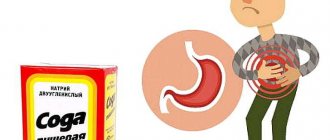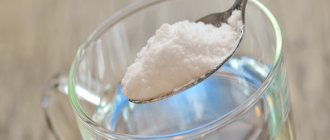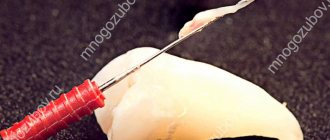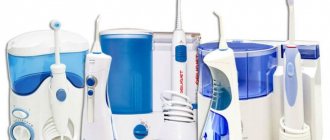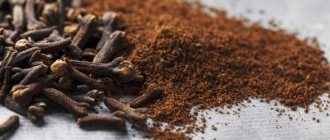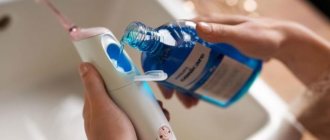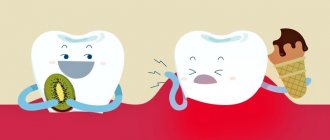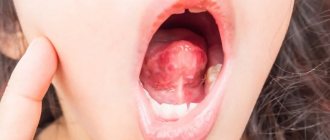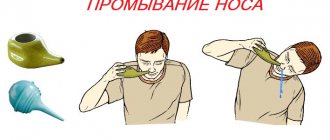Technological progress does not stand still. Humanity is receiving an increasing number of devices for comfort and health. Teeth and oral cavity are one of the most important areas of disease prevention. It is easier to prevent illness than to treat it later. Experts recommend the use of irrigators that require special liquids.
Liquid for irrigator
Refilling the irrigator with a special liquid.
Recently, among oral care products, irrigators are gaining more and more popularity. Their principle of operation is based on the supply of a jet of special liquid under pressure, which cleanses the oral cavity and all its components from bacteria, plaque and dental deposits.
The functional purposes of liquids for irrigators include:
- Preventing the development of bleeding gums, gingivitis, periodontal disease.
- Strengthening gums.
- Strengthening the effect of using the device itself.
- Enrichment of the oral mucosa with minerals.
- Eliminating bad breath.
The use of liquids in an irrigator provides more thorough sanitation of the oral cavity. This occurs as a result of the penetration of the solution into hard-to-reach places between the teeth and into the periodontal tissues themselves.
Advice! Experts recommend using special solutions for irrigators. As a rule, their composition is enriched with useful substances, which ensures their wide spectrum of action.
What is this?
An irrigator is a fairly simple device for cleaning teeth. It delivers a stream of water or a special dental solution under pressure. As a result, all hard-to-reach areas of the mouth are very quickly cleared of food accumulations and soft plaque.
It is especially important to purchase a device for the mouth for people who use mouth guards, wear braces, plates, have a dental bridge, crowns, or implants. It is indispensable when it comes to washing out food debris from under orthodontic systems. At the same time, it massages the gums and increases local blood circulation.
There are several attachments for convenient use. Your doctor will tell you how to choose the right one to solve specific problems.
Kinds
Do not fill the irrigator with running water!
Depending on the composition of the liquid for irrigators, they are classified into:
- Professional concentrates. Designed for use by dentists in hospital settings. Used for therapeutic purposes or in the postoperative period. Concentrates are often used during physiotherapeutic procedures. This is due to the fact that in addition to medicinal components, they contain antiseptic and various biological complexes.
- Household. These are special solutions produced by companies that specialize in producing oral hygiene products. They contain a much lower concentration of special additives, which allows them to be used for gentle daily hygiene.
- Homemade solutions. They contain various components, the therapeutic effect of which ensures their therapeutic effect. They are most often based on soda, sea salt, hydrogen peroxide and herbal infusions.
When choosing the liquid with which you will refill the irrigator, you should undergo a consultation with a dentist, and together with him agree on the specific type of solution. This will allow you to achieve a quick therapeutic effect from its use without harming the health of tooth enamel and gums.
Medicinal use
Medical irrigators have long been widely used in dentistry for almost all procedures, often without pressure, but with the purpose of supplying water “for spitting.”
For medicinal purposes, a household irrigator can be used:
- with increased plaque formation on the teeth;
- at the initial stage of gingivitis;
- with chronic periodontitis without exacerbation or with mild exacerbation in the initial stage.
For therapeutic purposes, instead of water, antiseptic liquids are used (solution of furatsilin, miramistin, chrolhexidine, special elixirs). The use of herbal decoctions and tinctures is limited by most device manufacturers, due to possible breakdown of the irrigator due to blockage of the passages.
Applications outside dentistry
With the increasing popularity of the device, it turned out that the irrigator is used not only in dentistry. Many people believe that using an irrigator is better to remove bacteria from the surface of the tonsils than with regular rinsing. The use of irrigators for irrigation with medicinal solutions is useful:
- tonsils for chronic tonsillitis;
- the back wall of the throat for pharyngitis (during this procedure, breathing is held for a short inhalation, and the root of the tongue should be pressed tightly, as when gargling).
When reviewing articles and user reviews from the Internet, it also turned out that there are craftsmen who, in case of chronic tonsillitis, used an irrigator with an attachment for periodontal pockets to wash out purulent plugs from the tonsils. Theoretically, with certain skills, this can be done. But it’s better to trust a specialist.
In otolaryngology, the removal of plugs from lacunae is carried out using a special curved needle with a blunt end. It is injected into the lacuna of the tonsils and under pressure with a medicinal solution, the pathological contents are washed out of them. If for this purpose you do not skillfully use a nozzle designed for rinsing gum pockets, you can, instead of rinsing it out with water pressure, on the contrary, drive the plugs deeper.
Important! Do not try to wash out tonsil plugs yourself; there are otolaryngologists for this.
Top 9 best oral solutions
| Name | Description and benefits | Price |
| Waterdent _ | Concentrated phytocomplex containing fluoride, which is additionally used for rinsing the mouth. Effectively cleans interdental spaces, periodontal pockets, braces, implants and other types of dentures. Contains bischofite, chlorhexidine and xylitol. | From 365 rubles |
| Donfeel (Donfil) | It has two types: a solution for daily use and for the prevention of dental pathologies. Depending on the purpose of the liquid, it contains various natural components based on extracts of medicinal herbs: lemon balm, mint, chamomile, calendula and echinacea. The absence of alcohol-containing components allows this liquid to be used by children. | From 230 rubles. |
| TerraSol (Terrasol) | Available in the form of a concentrate. Characterized by a powerful antimicrobial effect. The color of the liquid is deep blue, which limits its use to people prone to allergic reactions. | From 380 rubles. |
| Peridex (Peridex) | Refers to professional products. Contains 0.2% chlorhexidine. The main pharmacological action is the removal of bacteria in the oral cavity. This allows the drug to be widely used for therapeutic purposes and especially after surgical interventions. | From 120 rubles. |
| PerioGard (Periogard) | An effective liquid that has an antiseptic effect. It does not contain alcohol and contains chlorhexidine digluconate at a concentration of 0.2%. Clinical indicators: reduces the formation of dental plaque, prevents the development of gingivitis, inhibits the growth of bacteria, relieves periodontal inflammation. Designed for daily use. | From 285 rubles. |
| Asepta | Concentrate for a broad-spectrum irrigator. The active ingredients ensure the removal of bacterial plaque, prevent the deposition of tartar, eliminate inflammatory processes in the periodontium and its bleeding. An ideal product for the care of dental structures of any type. | From 415 rubles. |
| Albadent | A universal concentrate, which can be used daily as a hygiene product, or as a preventative drug, as well as in the treatment of periodontal disease and gum inflammation. The active components of the product help reduce the sensitivity of tooth enamel, effectively strengthen it and eliminate plaque of any density. | From 245 rubles. |
| Irix | Contains disinfectants. Helps reduce gum bleeding and prevents the development of carious lesions. The presence of menthol in the composition provides refreshment of the oral cavity for a long period of time. One of the main advantages is the absence of foam when using the product. | From 480 rubles. |
| Professor Persin | Fluoride-free liquid based on medicinal herbs. Intended for daily use for the prevention of various dental pathologies, especially gingivitis and caries. When foci of inflammation develop, it effectively stops them and stimulates tissue regeneration. | From 460 rubles. |
Action
Choose your irrigator fluid based on your doctor's recommendations.
Irrigator fluids have the following effects:
- Disinfectant. These liquids contain antiseptic components that effectively destroy bacteria in the oral cavity and prevent their proliferation.
- Therapeutic. These are special liquids containing calcium or fluoride that promote remineralization of dental bone tissue. The presence of medicinal herbal extracts in the compositions provides a wound-healing effect, relieves inflammatory processes and pain syndrome in periodontal diseases.
- Deodorizing. Such solutions contain mint or menthol components, which provide fresh breath for a long period of time.
- Preventive. The use of special liquids intended for daily use prevents the development of various dental pathologies. At the same time, the bone tissue of the teeth and gums is enriched with useful substances and minerals. Also, such solutions are able to stimulate blood microcirculation in periodontal tissues, which leads to strengthening of teeth and gums.
Reference! In many ways, the effectiveness of using an irrigator depends on the correct choice of liquid. Its choice should be made exclusively by a specialist, taking into account the clinical picture in the oral cavity and the pharmacological action of the drug.
Basic rules for choosing a liquid
When choosing a solution for an irrigator, you should consider its purpose and composition. Depending on the active components, the solutions used during irrigation are intended for:
- Strengthening enamel with fluoride content.
- Treatment and prophylactic purposes. They contain plant substances and antiseptic drugs.
- The presence of menthol and mint extract in their composition provides freshness to the breath.
It is also worth considering the type of liquid. It is strictly forbidden to use professional compositions at home. People prone to allergies are recommended to give preference to hypoallergenic balms. When preventing dental pathologies, as well as for children, special gentle formulations should be used, preferably without alcohol.
If there is a problem with the constant occurrence of inflammation of the mucous membranes of the oral cavity, preference should be given to liquids that have an anti-periodontal effect. They contain compositions of various bioantioxidants and anti-caries additives.
A preliminary consultation with a dentist will help you make the right choice. Using unsuitable solutions can lead to side effects such as thinning or darkening of tooth enamel.
Clinical researches
It has been clinically proven that the ASEPTA irrigator solution more effectively combats the causes of inflammation and bleeding. The use of the product increases the cleansing effect by 50%, reduces the risk of inflammation by up to 74% and increases anti-caries effectiveness by 49%.
Sources:
- Report on clinical trials to determine/confirm the preventive properties of commercially produced personal oral hygiene products: mouth rinse "ASEPTA PARODONTAL" - Solution for irrigator." Doctor of Medical Sciences Professor, Honored Doctor of the Russian Federation, Head. Department of Preventive Dentistry S.B. Ulitovsky, doctor-researcher A.A. Leontiev First St. Petersburg State Medical University named after academician I.P. Pavlova, Department of Preventive Dentistry.
- Report on determining/confirming the preventive properties of commercially produced personal oral hygiene products: Asepta toothpaste used in combination with Asepta mouthwash and Asepta gum balm Head. Department of PFS Doctor of Medical Sciences Professor S.B. Ulitovsky St. Petersburg State Medical University named after Academician I.P. Pavlova. Faculty of Dentistry. Department of Preventive Dentistry.
- The role of anti-inflammatory rinse in the treatment of periodontal diseases (L.Yu. Orekhova, A.A. Leontyev, S.B. Ulitovsky) L.Yu. OREKHOVA, Doctor of Medical Sciences, Prof., Head of Department; A.A. LEONTIEV, dentist; S.B. ULITOVSKY, Doctor of Medical Sciences, Prof. Department of Therapeutic Dentistry of St. Petersburg State Medical University named after. acad. I. P. Pavlova
How to use it correctly
Regardless of the type of liquid, the rules for its use should be strictly followed:
- If you use household products, you should carefully study their operating instructions.
- Do not use the liquid if there are contraindications and there are no indications for use.
- The use of homemade solutions is permissible after complete dissolution of all components in them and filtration of herbal decoctions.
- Most of these liquids are presented in the form of concentrates, requiring their preliminary dilution in a ratio of 1:10.
- To prepare liquids, you must use only purified, distilled or boiled water.
- The water temperature should not be more than 38 degrees.
- The most appropriate time for irrigation is the evening after brushing your teeth.
- The liquid is directed to the gums at an angle of 80 degrees, and the duration of the procedure should not exceed 15 minutes.
- The frequency of use of a particular liquid is determined taking into account its type and purpose.
Varieties
Today there are a large number of irrigators, differing from each other in various parameters. Devices are divided into portable and stationary, powerful and not very powerful, with one or more nozzles and modes, with and without microbubble technology, with a water tank and with a connection to a tap, as well as with built-in dental floss, like JETPIK irrigators, in several times increasing the effectiveness of teeth cleaning. Do not also forget that each device has a certain warranty period, depending on the policy of the manufacturer. Read about how to choose the best irrigator in our other articles.
Reliable and convenient irrigator for the whole family Hydro Floss Kitty Waterjet
Recipes for making your own liquids for irrigators
Many experts recommend using homemade solutions from gentle ingredients that are easy to make with your own hands:
- Soda solution. 10 g of baking soda should be thoroughly dissolved in 0.3 liters of warm boiled water.
- Salt liquid. Mix 300 ml of warm purified water with 5 g of unflavored sea salt. Stir until it is completely dissolved.
- Hydrogen peroxide based solution. Mix 250 ml of water at room temperature with 10 ml of the main raw material.
Important! Despite the ease of preparation of these solutions, their use and duration of use should be agreed with a doctor. Incorrect concentration and prolonged use can lead to dehydration of teeth, increased sensitivity, as well as destruction of connective tissue and loss of dental strength.
Rules for caring for the device
An irrigator, like any other device, can become clogged. To prevent this from happening, it is recommended to wash it after each use, provided that special medicinal solutions or decoctions are used for cleaning teeth.
Please note: to wash the irrigator, you can only use filtered boiled water, preferably warm.
Otherwise, scale may form on the internal parts, which will lead to damage to the device. After washing all the parts, they need to be wiped dry and stored in a dry place.
Under no circumstances should the device be completely immersed in water when washing; this can also damage it.
Where can I buy
Carefully study the composition and expiration date before purchasing.
Professional solutions for irrigators are sold by representatives of pharmaceutical companies, which, as a rule, work exclusively with dental clinics.
Household liquids are freely available. Today, they can be easily purchased in household chemical and hygiene stores, pharmacies, and also in online stores.
When purchasing liquid for an irrigator by any means, you should pay special attention to its expiration date, manufacturer and composition. This will avoid the use of low-quality products that may be produced by illegal companies.
When not to use
Doctors recommend using a jet applied to the teeth under pressure as part of a comprehensive cleaning, rather than in isolation. This hygienic procedure is useful for people with braces, bridges, crowns, and periodontal diseases.
There are restrictions on the use of the described equipment. Thus, in case of severe diseases of the cardiovascular system, acute periodontitis and gingivitis, during the recovery period after surgery on oral tissues, you cannot experiment with dental innovations.
If you have any doubts about whether to purchase equipment, you should consult your dentist. The doctor will tell you what to do right.

